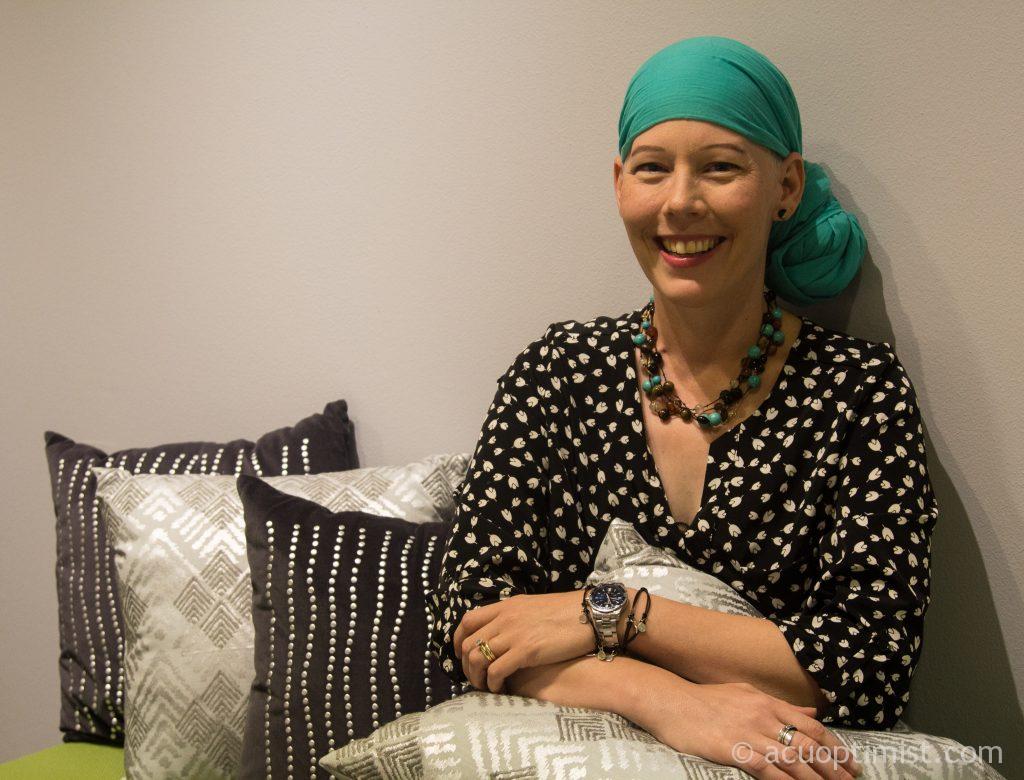After being diagnosed with breast cancer in March, Dr. Laura Carroll has kept up with both her job as an associate professor of English and her position in the Adams Center as the director of faculty development – all while driving back and forth to Dallas for chemotherapy.
Though it’s been hard to manage and find a good balance between her family, work and treatment, one of the best things was not allowing the cancer to completely disrupt her normal life.
“Through this whole process, from diagnosis to now, going to work and living my normal life the very best I can has been one of the most helpful things for me,” Carroll said. “Simply because it adds a sense of normalcy, getting up and getting dressed and going to work, it’s something that feels normal and that healthy people do. There’s definitely days where I’m really fatigued, but for me, to be able to come and interact with students, which is absolutely my favorite thing to do, especially in those early days, was really encouraging. Coming and being with other people and getting the chance to do work that I’m good at and that I love makes me feel like Dr. Laura Carroll, that person that I normally am, and not a breast cancer patient.”
The tight-knit ACU community has been with her every step of the way. When she was diagnosed in March, her students were thoughtful and understanding of what she was going through, and wanted to help by offering things like babysitting and prayers. A group of students who studied abroad in Oxford during the fall of 2014, when Carroll and her family were the study abroad faculty in Oxford, heard about her diagnosis and immediately showed support by giving her a gift basket full of coloring books, headscarves, encouragement notes, and a blanket – all things she might need when going through chemotherapy – as a way to show their love and concern. Faculty members have also helped, offering to drive her to appointments, sit with her through chemotherapy, and pick up the slack when she had to be out of the office.
Through it all – the doctor’s appointments, chemotherapy and upcoming surgery and radiation – Carroll has felt God’s presence.
“From the very first days of my diagnosis, there have been people who I had never met who spoke to me words that I absolutely needed to hear or offered a kindness I needed more than anything at that moment. That, to me, was God showing His presence,” she said. “What may have been one of the worst days of this process so far was the day that I was getting a PET scan. What they’re looking for is to see if the cancer’s spread anywhere else in the body, which is terrifying, right? We all know that if it spreads, that’s a really bad thing. The tech who was getting me ready for the PET scan – and I’m just a wreck – says, ‘I’m a fifteen year survivor,’ and talks about her journey being diagnosed at 36. Now she’s 51 years old, and it doesn’t even cross her mind. That’s what I needed to hear that day. To me, that was God’s voice saying, ‘I’m here.'”
Another time, after her first round of chemotherapy, Carroll and a friend went to Sephora to look at some makeup products because she was already anticipating one of the side effects of the treatment: hair loss.
“The young woman, Brooklyn, who worked at the brow bar, spent probably an hour telling me how to do my eyebrows, showing me how to put on fake eyelashes, and was just so kind and gentle. We talked about a friend of hers who had cancer and again, that extreme kindness in this moment when I was scared and broken and lonely, this person I don’t know takes the time to be extra kind. That was God’s provision and God’s presence.”
And yet, there are still times where it’s hard to know exactly how God’s working.
“Certainly on Monday, when I got the report that the MRI was completely cancer-free, one of my first impulses was to praise God, and yet you don’t have to live for very long to see a lot of times when people have prayed fervently for healing that didn’t come,” Carroll admitted. “Knowing how to walk that walk is difficult, knowing how to feel about that is hard, as a person who’s now on the receiving end of those prayers.”
But still, things look optimistic for Carroll. She’s scheduled for a mastectomy in less than two weeks, after which she’ll start radiation, and she’s always looking for a silver lining.
“I saw a post on Facebook the other day where somebody said, ‘Cancer’s one of the best things that’s ever happened to me.’ They were talking about all the blessings that have come out of this experience. I’m not there yet. Can I see silver linings? Absolutely. Have people shown me how loving and kind and present they can be? Absolutely. But it’s hard. It’s hard on my kids. It’s hard on my family, and yet, in a lot of ways, we can still do normal. I’d rather not have had cancer, but we can still do normal life.”


